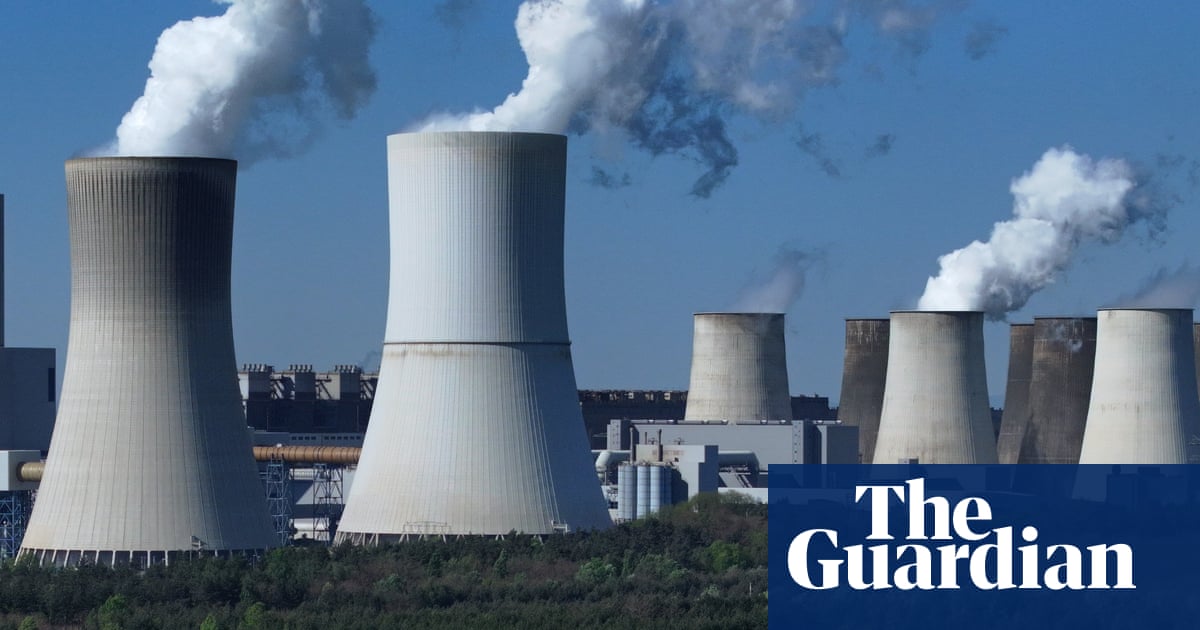European companies are increasingly lobbying for strong climate action,researchhas found, in a “profound shift” that analysts say challenges the narrative that businesses see green rules as a threat to profits.
The share of companies whose corporate lobbying is “aligned” with pathways to meet global climate goals rose from 3% in 2019 to 23% in 2025, according to an analysis of 200 of the largest European companies by InfluenceMap, while the share of companies who were deemed “misaligned” fell from 34% to 14%.
The report found more than half of the companies were at least “partially aligned” with pathways to stop the planet from heating 1.5C above preindustrial levels by the end of the century.
“Those vocally organising to oppose the energy transition achieve outsized importance across public debate,” said Venetia Roxburgh, an analyst at InfluenceMap, a nonprofit that tracks corporate lobbying. “However, this research demonstrates that there is a larger, quieter majority that are supportive of decarbonisation and driving progress through climate policy.”
The researchers tracked business engagement on climate policy through channels ranging from corporate disclosures to EU consultation documents to social media posts. They gave more weight to statements from managers and formal consultations on specific policies, and placed more importance on recent pieces of evidence.
They found “an increasingly substantial portion of the corporate sector” was engaging in positive climate advocacy.
In 2019, when theEuropean Commission announced its Green Deal, only one in four companies were lobbying partly in line with Paris Agreement goals of keeping the planet from heating 1.5C (2.7F), the report found. By 2025, that share had doubled.
The researchers found industry associations were lagging behind individual companies. The share of aligned or partly aligned associations rose from 2% in 2019 to 12% in 2025, far below the share of similarly supportive companies.
The disparity could arise from industry associations prioritising the views of the loudest opponents of climate policy, though it could also be the result of companies channelling unsavoury lobbying requests through trade groups.
“Industry associations in the EU appear to be fighting a losing battle against the tide of positive corporate action on climate policies,” said Roxburgh. “[They] need to urgently reassess their priorities if they are to continue to act as true representatives of the majority of their membership.”
The worst-scoring companies in the ranking, weighted by their level of engagement on policy, were the Polish utility PGE; the Austrian oil and gas producer OMV; the Spanish oil and gas producer Repsol; the Spanish transmission system operator Enagás; and the German airline Lufthansa.
Enagás, which InfluenceMap cited as supporting the long-term role of fossil gas in energy and transport and advocating to weaken measures for methane emission leak detection and repair, said its climate policy is committed to reaching net zero emissions by 2040 – not including the emissions from customers using its products – and by 2050 overall. It added that it had embraced the EU’s methane regulation, for which it had received the highest rating from the International Methane Emissions Observatory.
Lufthansa, which InfluenceMap cited as lobbying against the EU mandate for sustainable aviation fuels and the full inclusion of aviation in the EU Emissions Trading System, said it did not oppose either policy but was calling for “competition-neutral implementation”.
PGE, OMV and Repsol did not respond to a request for comment.
The European Commission has put “competitiveness” at the heart of its agenda since its new mandate began in December, in a partial reversal of its Green Deal after elections in 2024 that saw sizeable gains for the far right and losses for the greens.
Environmental groups have criticised the new focus on simplification as a cover for deregulation that will allow companies to pollute more.
